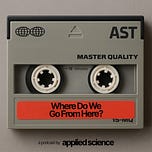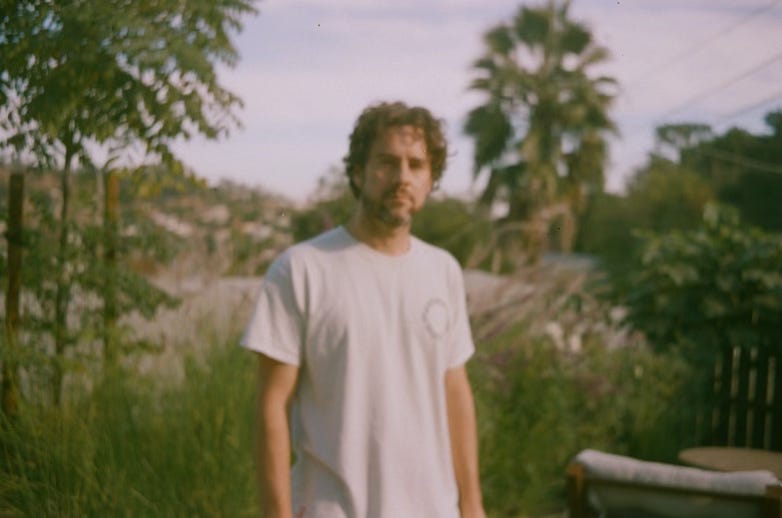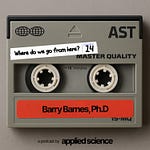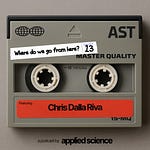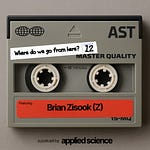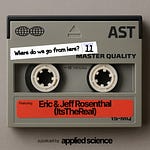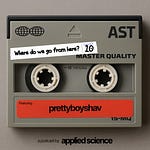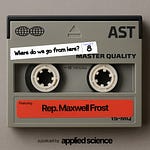On this episode of Where Do We Go From Here?, I speak with my long time friend and literal neighbor Mars Today. Mars is a man of many gifts, a singer, producer, music director, and the driving force behind Over Everything, the non-profit record label he has operated since 2021. That’s not a joke about the label’s ability to make money. It’s a literal 501(c)3 charitable organization that redirects all of its profits to its artists.
Mars has big ideas for a more equitable future for artists and creators, a spirt that united us years back when a friend first connected us. He’s one of the very few people I know in this business who maintains lofty ideals and backs them up with action. His work certainly embodies the spirit we’re trying to capture with this show.
A few key takeaways from our conversation…
Artist development is human development: “Artist development” is a term that gets thrown around a great deal in the music industry. Different people might mean different things when they say it. An agent might mean grueling touring that builds character, chops, and hard ticket history. An A&R might mean time spent in the studio recording and patience for honing an artist’s craft. Mars and I discuss the notion that true artist development is holistic, as much about education, life experience, and self care as days on the road or hours in recording sessions. Mental health, financial literacy, and building community are all tenets of artist development that we touch on in the episode.
Redefining "independence" and embracing "DIY": Any close followers of Applied Science will know that I have longstanding beef with the term “independent” as it pertains to labels and artists. Mars thinks it’s far healthier to reframe being an independent artist as a “DIY” artist, leveraging available tools and resources strategically while maintaining creative control. As Mars stated, "I almost apply DIY more than independent these days because I think independence is a bit more convoluted and like really a semantics question a lot of the time." This sort of language moves us away from the the independent vs. major binary that has colored some much of the history of recorded music, encouraging artists to be resourceful and adaptable, to use technology and various partnerships to build their careers, rather than solely relying on one type of label structure or another.
Sustainability through streaming: Perhaps a bit of a controversial view, but Mars and I both see streaming as an historic net positive for artists and small labels. Spotify and YouTube, of course, can and should pay larger royalties to artists, writers, and producers, but the digital streaming ecosystem has allowed a much larger pool of artists to sustain themselves than ever before. Mars looks at it very pragmatically when talking to artists: "My new thing is like, let's get this streaming thing covering the rent.”
A radical approach to the role of a label: Mars’ Over Everything has never taken a single dollar from any of its “signings.” “We've helped distribute like 350 grand directly to artists off streaming that we have zero percent of," Mars notes. Instead, Over Everything functions as a kind of advisory board and service provider to artists, incubating them and helping oversee their journey to sustainability. It is an extreme notion, no doubt, one afforded by donations and OE’s 501(c)3 status. While it is impossible to imagine many labels adopting similar structures, it does point to what labels do and don’t do well in the current era, and how they’ll be forced to adapt through the numerous tests facing copyright holders over the coming years. Mars also sees a bit more of an experimental path benefiting labels of all scales in a time of fewer “sure bets”. He feels labels should be "be less concerned about signing things for two to three albums and more concerned with throwing a bunch of affordable stuff at the wall and then upstreaming reactively."
Even though so much of Los Angeles has returned to a sense of eerie normalcy, the loss from January’s fires remains immeasurable and many people still need help. As usual, please see a list of resources for fire recovery below.
LA Country has launched an exhaustive website with resources for preparedness and recovery (including links for debris removal and right of entry forms). The site is updated regularly (most recently on 3/10/25).
Mutual Aid Network of Los Angeles’s provides an expansive number of funds, organizations, and aid types across the expanse of the city. Additionally, it provides a powerful tool for finding specific aid types. A great place to start for anyone looking to do some good or in need of assistance.
A book/PDF written for parents to help explain the enormity of wildfire to their children.
PBS SoCal’s resources for how to talk to children about wildfires.
A U.S. government fact sheet on protecting children from wildfire smoke and ash.
A spreadsheet of GoFundme’s for Black families from Altadena who have been displaced or lost their homes. Altadena is one of Los Angeles’ historically Black centers, a place where generations of hard-earned wealth and equity in the land were decimated in a matter of days. (first seen via Saul Williams)


